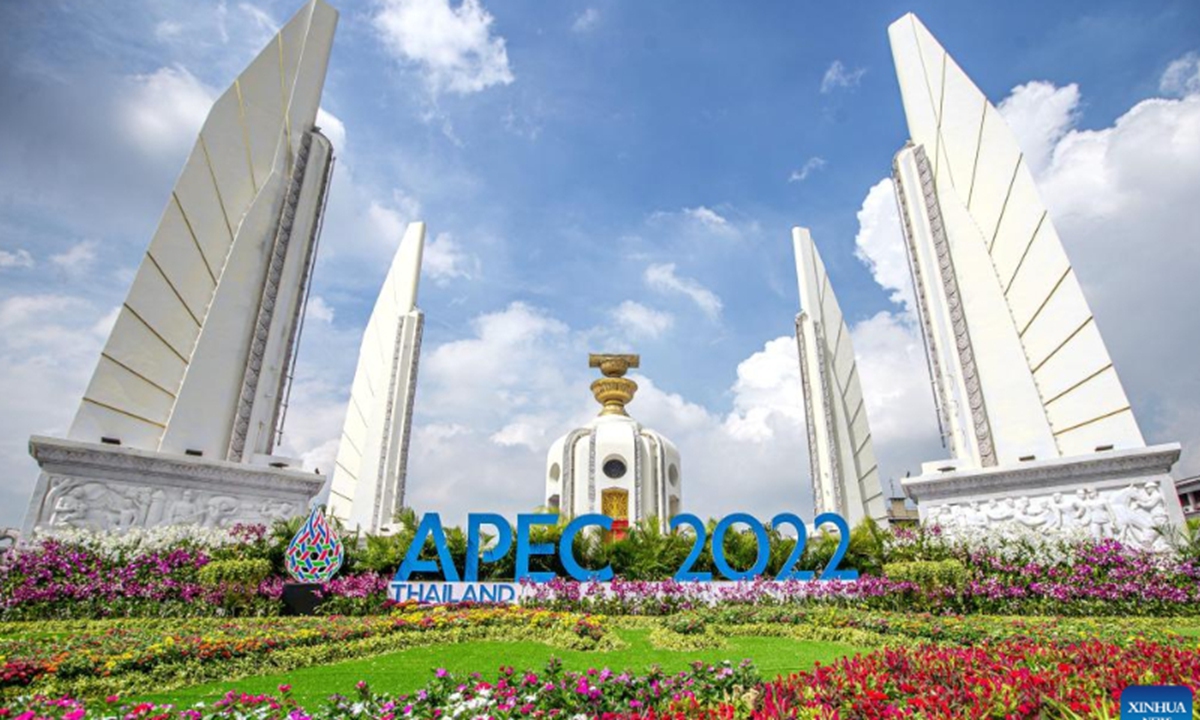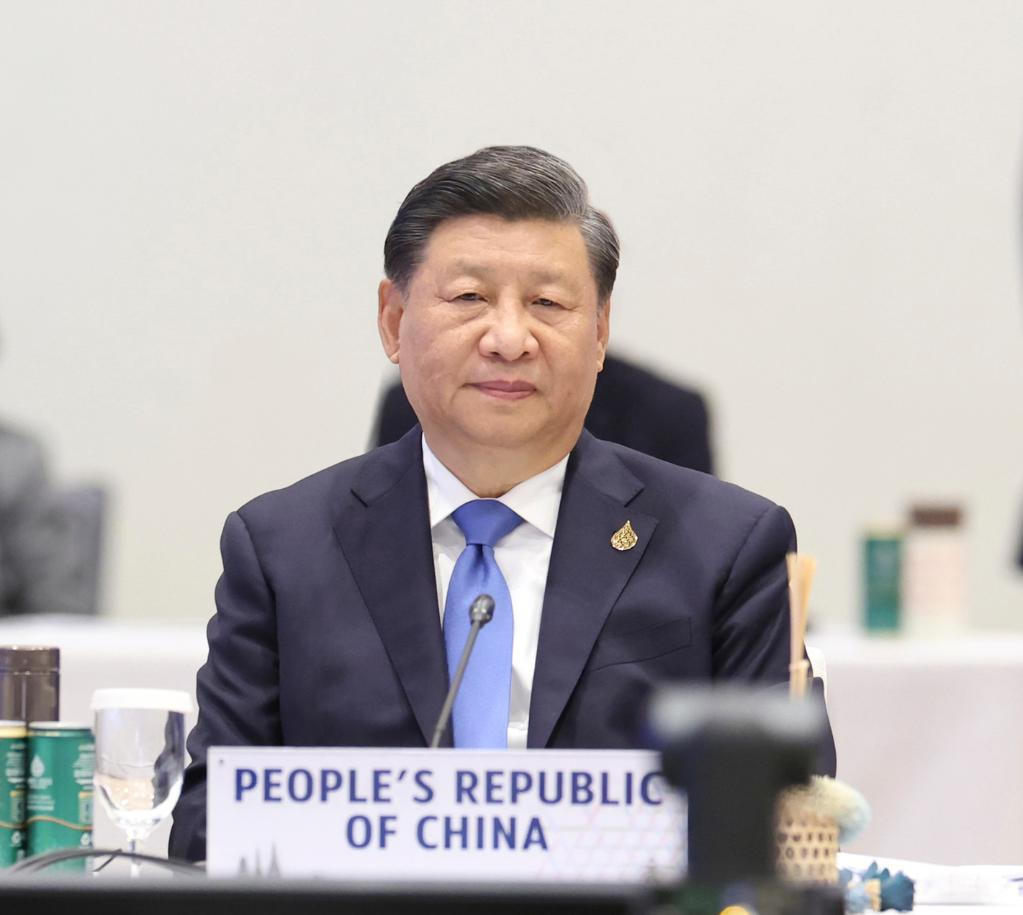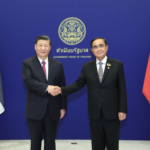Chinese President Xi Jinping wrapped up the 17th meeting of the G20 Leaders’ Summit, the 29th APEC Economic Leaders’ Meeting and his official visit to Thailand on Saturday afternoon and left the country, returning to China, Chinese Central Television reported. The week-long trip, with a packed diplomatic schedule, offered Chinese wisdom and ideas for pushing forward globalization, setting the tone for the right direction for cooperation and coordination among major powers, experts said.
Xi said on Saturday during the 29th APEC Economic Leaders’ Meeting in Bangkok that free and open trade and investment form the purpose and principles of APEC and also the pillar for the realization of the Putrajaya Vision 2040.
Xi stressed the importance on upholding true multilateralism and defending the multilateral trading system. More should be done to safeguard the rules-based multilateral trading system, keep global industrial and supply chains secure and stable, foster an open, fair and non-discriminatory trade and investment environment, and strive for the early realization of a comprehensive, high-standard Free Trade Area in the Asia-Pacific, he said.
He also mentioned the importance of upholding inclusiveness for the benefit of all and upholding open regional cooperation for the prosperity of the Asia-Pacific. “China will not waver in its commitment to high-standard opening up. China will open its door still wider,” Xi said.
The meeting issued the 2022 APEC Economic Leaders’ Declaration and the Bangkok Goals on Bio-Circular-Green Economy.
The declaration, adopted after the two-day APEC gathering, affirmed APEC leaders’ long-standing commitment to promote strong, balanced, secure, sustainable and inclusive growth, as well as their commitment to realize the APEC Putrajaya Vision.
Some Chinese observers believed that this year’s APEC Economic Leaders’ Meeting – the first in-person gathering since 2018 – was a milestone in building a community with a shared future for the Asia-Pacific, yielding some important results including the proposed free trade and investment structure, reaffirmed inclusiveness of regional growth and consensus of tackling the common challenges such as uneven development and the post-COVID recovery.

A logo of APEC 2022 is pictured on a street in Bangkok, Thailand, November 16, 2022. Photo: Xinhua
Free and open Asia-Pacific
“The Asia-Pacific region has become a driving force of the global growth, so that an open and free environment for investment and trade is extremely important, especially when there have been trends of decoupling and setting up barriers,” Xu Liping, director of the Center for Southeast Asian Studies at the Chinese Academy of Social Sciences, told the Global Times on Saturday.
There are various multilateral and bilateral trade pacts in the region, and Xu stated that more efforts need to be made to integrate those free trade agreements to build a comprehensive free trade pact characterized by inclusiveness and mutual trust.
Earlier this year, the US has unveiled its Indo-Pacific Strategy report and has continuously increased its investment in the region with the focus on competing with China strategically, some experts noted. The true intention of Washington is to create an Indo-Pacific version of NATO, Xu Bu, president of the China Institute of International Studies, told at a recent forum.
“In order to maintain the US-led hegemony, these intentions impact ASEAN-centered cooperation structure and pose challenges to the overall stability and regional development,” Xu said.
In contrast to the US’ intention of dividing the region to maintain its own hegemony, China’s advocacy for building an Asia-Pacific community with a shared future is for the benefit of all residents in the region, setting an example for development and cooperation in other parts of the world, experts said.
Xi said in a written speech at the APEC CEO Summit on Thursday that the Asia-Pacific is no one’s backyard and should not become an arena for contests between big powers.
No attempt to wage a new Cold War will ever be allowed by the people or by our times, Xi said.
The US has not really taken into account the interests of ASEAN members, gradually losing the initiative of pushing forward the development of APEC, Ge Hongliang, director of the China-ASEAN Maritime Security Research Center at Guangxi University for Nationalities, told the Global Times on Saturday.
“The US has focused on setting up some other multilateral mechanisms such as TPP or IPEF, which actually won’t work out in the region,” Ge said. Hopefully, this year’s APEC meeting will become a watershed and milestone moment to increase the regional cooperation and face the common challenges.
As we know that the Asia-Pacific has been affected by the strategic competition waged by the US against other countries, with its supply chains being also affected, and the region also faces increasingly uneven development, Ge said.
Intensive head-of-state diplomacy
In facing growing geopolitical challenges, China has pledged to promote peace and development, vowing to build a human community with a shared future, which was conveyed to the world at the 20th National Congress of the Communist Party of China in October and also fully underscored by Xi during his week-long trip to two major international gatherings in Southeast Asia.
As Xi’s first foreign trip after the conclusion of the Party congress, Xi attended the G20 Summit in Bali, Indonesia, which was also an occasion for bilateral meetings with world leaders including US President Joe Biden. He met with many world leaders including those from US allies such as French President Emmanuel Macron and Australian Prime Minister Anthony Albanese in addition to leaders from emerging economies such as Argentina and South Africa.
During the APEC gathering, Xi also met leaders including Japanese Prime Minister Fumio Kishida, New Zealand Prime Minister Jacinda Ardern and Philippine President Ferdinand Romualdez Marcos.
“With both bilateral and multilateral occasions, the unique role of head-of-state diplomacy has been fully underscored, tremendously enhancing communication,” Wang Yiwei, director of the Institute of International Affairs at the Renmin University of China, told the Global Times on Saturday.
With the US constantly using the Taiwan question to hype the so-called threat from the Chinese mainland and to pressure the international community over ill-intentioned claims against China, in order to contain China or decouple from China, such in-person communication provided a clear direction for regional and global cooperation as well as coordination among major powers, Wang said.
“Only when we continue deepening cooperation in the Asia-Pacific, there will be little room for the US to use its Indo-Pacific strategy to divide the region and to play out its decoupling and new Cold War tactics,” the expert said.
(Global Times)




